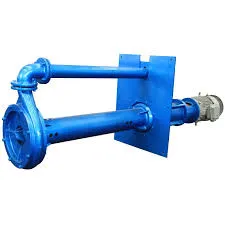English
- Afrikaans
- Albanian
- Amharic
- Arabic
- Armenian
- Azerbaijani
- Basque
- Belarusian
- Bengali
- Bosnian
- Bulgarian
- Catalan
- Cebuano
- Corsican
- Croatian
- Czech
- Danish
- Dutch
- English
- Esperanto
- Estonian
- Finnish
- French
- Frisian
- Galician
- Georgian
- German
- Greek
- Gujarati
- Haitian Creole
- hausa
- hawaiian
- Hebrew
- Hindi
- Miao
- Hungarian
- Icelandic
- igbo
- Indonesian
- irish
- Italian
- Japanese
- Javanese
- Kannada
- kazakh
- Khmer
- Rwandese
- Korean
- Kurdish
- Kyrgyz
- Lao
- Latin
- Latvian
- Lithuanian
- Luxembourgish
- Macedonian
- Malgashi
- Malay
- Malayalam
- Maltese
- Maori
- Marathi
- Mongolian
- Myanmar
- Nepali
- Norwegian
- Norwegian
- Occitan
- Pashto
- Persian
- Polish
- Portuguese
- Punjabi
- Romanian
- Russian
- Samoan
- Scottish Gaelic
- Serbian
- Sesotho
- Shona
- Sindhi
- Sinhala
- Slovak
- Slovenian
- Somali
- Spanish
- Sundanese
- Swahili
- Swedish
- Tagalog
- Tajik
- Tamil
- Tatar
- Telugu
- Thai
- Turkish
- Turkmen
- Ukrainian
- Urdu
- Uighur
- Uzbek
- Vietnamese
- Welsh
- Bantu
- Yiddish
- Yoruba
- Zulu
Telephone: +86 13120555503
Email: frank@cypump.com
Sep . 28, 2024 18:20 Back to list
Understanding the Efficiency and Applications of Mixed Flow Pumps in Modern Engineering
Understanding Mixed Flow Pumps Applications and Advantages
Mixed flow pumps are an essential category of fluid transport devices widely used in various industrial applications. These pumps combine the characteristics of both centrifugal and axial flow pumps, making them ideal for scenarios where a medium level of head and flow rate is required. In this article, we will explore what mixed flow pumps are, how they work, their applications, and the advantages they offer.
What are Mixed Flow Pumps?
Mixed flow pumps, as the name suggests, facilitate a combination of axial and radial flow. Fluid enters the pump axially at the impeller's eye and is then directed radially outward, producing a flow that is neither purely axial nor purely centrifugal. This unique design allows mixed flow pumps to handle fluids at higher flow rates and moderate heads, typically ranging from 10 to 50 meters.
The impeller design of a mixed flow pump is crucial. It usually has an inclination that permits fluid to be both lifted and pushed out, differing from traditional centrifugal pumps, where the main action is centrifugal force. This results in improved efficiency for specific conditions, particularly in applications requiring consistent flow rates at varying pressures.
Applications of Mixed Flow Pumps
Mixed flow pumps are extensively used in several applications due to their versatile architecture. Some prominent applications include
1. Water Supply and Drainage The ability to deliver a large volume of water at a reasonable pressure makes mixed flow pumps suitable for municipal water supply and drainage systems.
2. Irrigation Systems In agriculture, these pumps efficiently move water from sources like rivers and lakes to fields, ensuring crops receive adequate irrigation.
3. Flood Control Mixed flow pumps play a vital role in pumping excess water during heavy rainfall or flooding, thereby helping to mitigate damage and protect communities.
mixed flow pump

5. Firefighting Systems The fast and high-flow characteristics of mixed flow pumps make them suitable for firefighting systems, where rapid water supply is critical.
6. Cooling Systems In power plants and industrial facilities, mixed flow pumps are often employed in cooling water systems, assisting in maintaining optimal temperatures for equipment functionality.
Advantages of Mixed Flow Pumps
The mixed flow pump design offers multiple advantages that make it a preferred choice in many sectors
1. High Efficiency These pumps efficiently transfer fluids, especially in applications requiring high flow rates at moderate heads.
2. Versatile Operation Mixed flow pumps can operate effectively in varying conditions, providing flexibility in different applications.
3. Lower NPSH Requirements Mixed flow pumps typically have lower Net Positive Suction Head (NPSH) requirements compared to traditional centrifugal pumps, reducing the risk of cavitation and improving reliability.
4. Compact Design The design of mixed flow pumps is often more compact than that of large centrifugal pumps, allowing for easier installation in limited spaces.
5. Cost-Effective Due to their efficiency and reliability, mixed flow pumps can be a cost-saving investment in long-term operation and maintenance.
Conclusion
Mixed flow pumps stand out as efficient, reliable, and versatile pumps suitable for a wide range of applications. Their ability to combine the benefits of axial and centrifugal design allows them to adapt to various operational demands. Industries ranging from agriculture to municipal utilities benefit from their unique hydraulic characteristics, underscoring the importance of mixed flow pumps in fluid dynamics. As technology advances, the application of mixed flow pumps is likely to expand further, solidifying their place in modern engineering and industrial processes.
-
ISG Series Vertical Pipeline Pump - Chi Yuan Pumps Co., LTD.|High Efficiency, Energy Conservation, Low Noise
NewsJul.29,2025
-
ISG Series Vertical Pipeline Pump-Chi Yuan Pumps Co., LTD.|High Efficiency&Energy-Saving
NewsJul.29,2025
-
ISG Series Vertical Pipeline Pump - Chi Yuan Pumps Co., LTD. | High Efficiency, Energy-Saving
NewsJul.29,2025
-
ISG Series Pipeline Pump - Chi Yuan Pumps | High Efficiency, Low Noise
NewsJul.29,2025
-
High-Efficiency Vertical Slurry Pumps for Mining & Industry Solutions
NewsJul.29,2025
-
High-Efficiency Pipeline Pump Solutions for Every Pipeline Pump Station
NewsJul.29,2025










